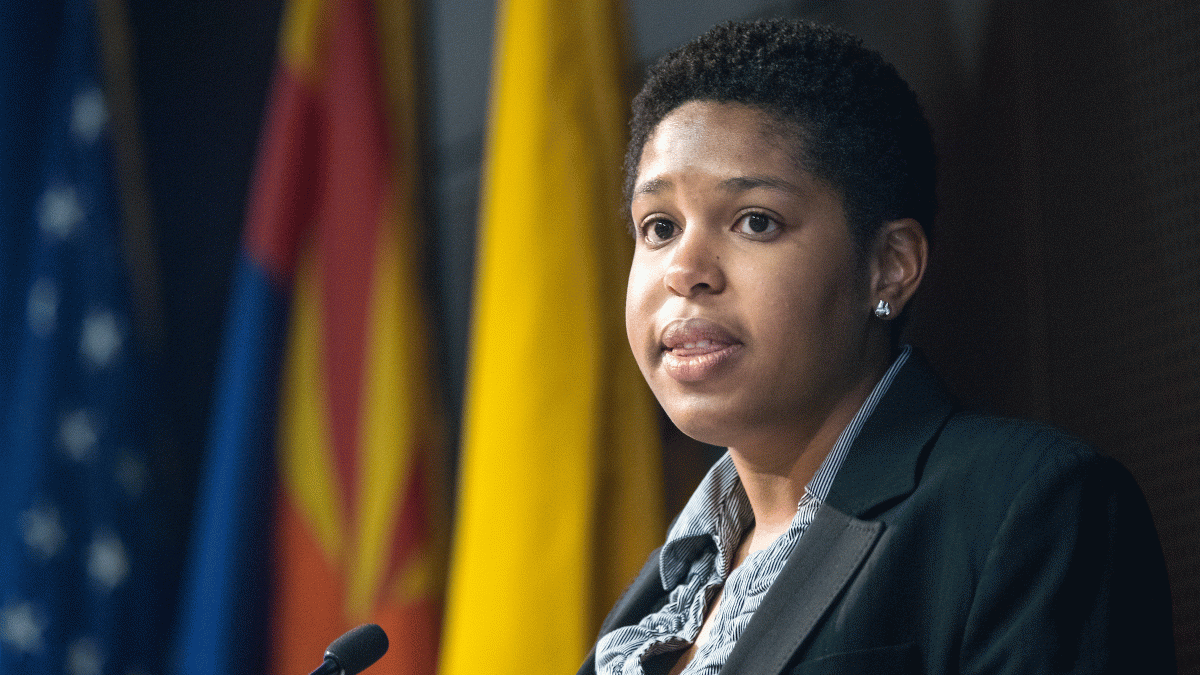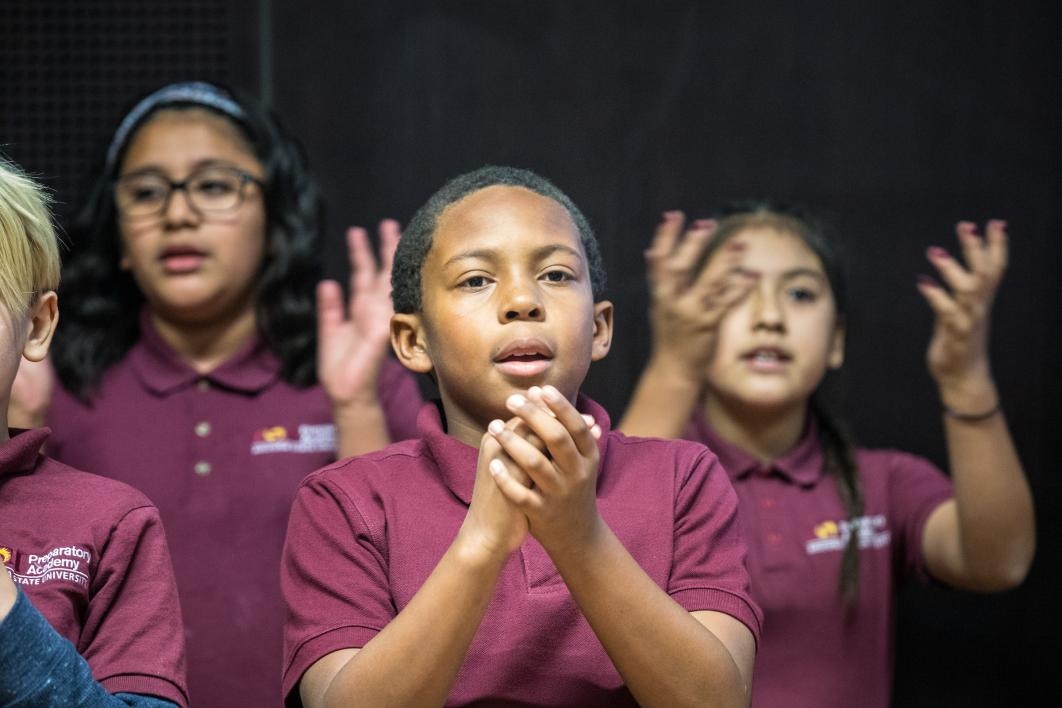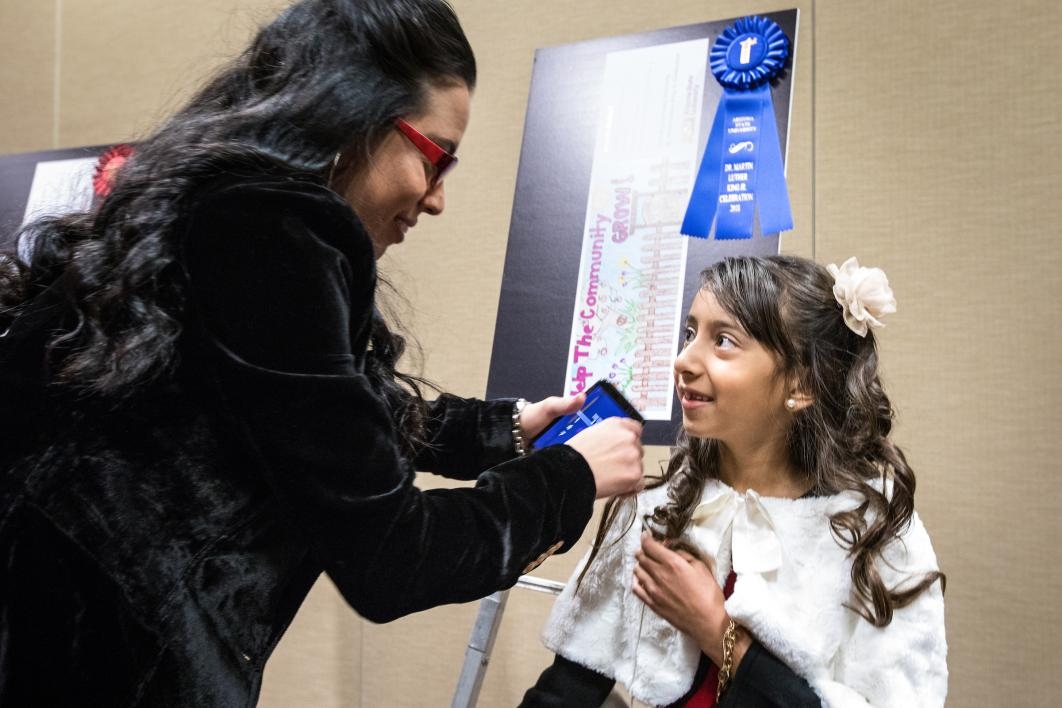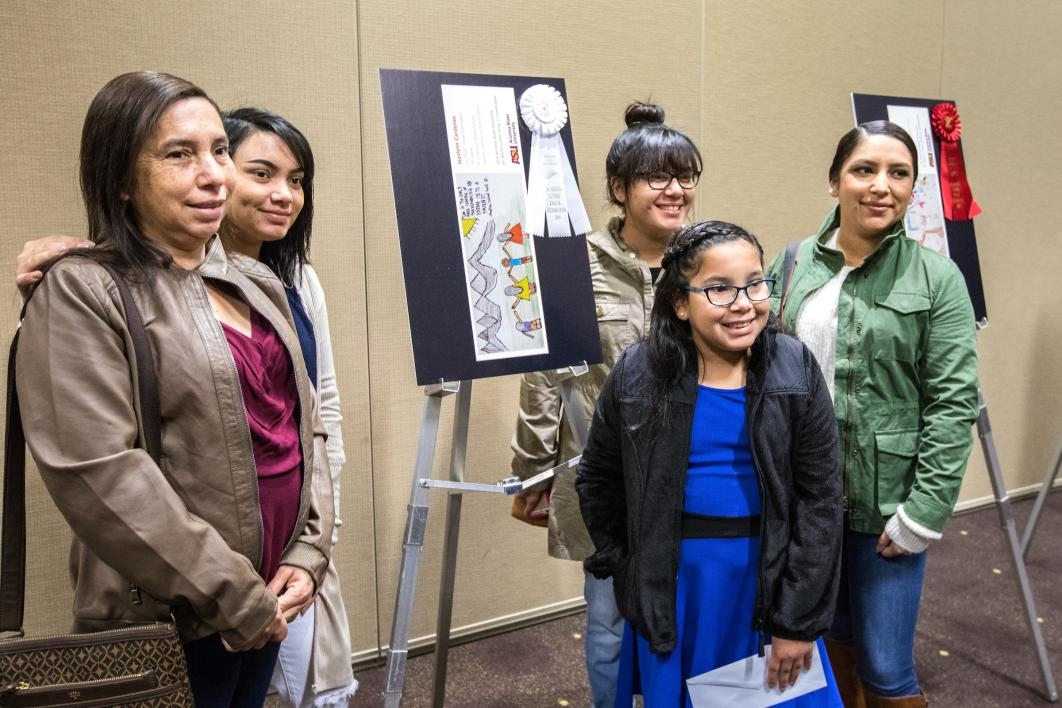Young people urged to find their cause at MLK celebration

Cindy McCain told a roomful of young people that even if they haven’t yet found the cause that moves them, they soon will.
“You are next. It’s your time to make the right decisions and live your life in the right way so that you too can help others,” she said.
McCain spoke at the Dr. Martin Luther King Jr. Celebration at Arizona State University on Thursday morning, where she won the 2018 Community Servant-Leadership Award for her work fighting human trafficking.
“With regard to vulnerable women and children, it’s an area that I’ve worked in for a long time. It is something that moved my heart at a young age,” she said.
She praised ASU for inspiring students to find their causes and to make a difference.
“Make sure you leave this planet a better place than when you stepped on it,” said McCain, who is co-chair of the Arizona Human Trafficking Council and serves on the McCain Institute’s Human Trafficking Advisory Council.
She had hoped to attend the event on ASU’s Tempe campus but instead addressed the crowd via Skype so she could stay at home with her husband, Sen. John McCain, who is recovering from brain surgery.
The breakfast celebration, which has been held for 33 years, had the theme of “Look deeper, speak louder” and included the winners of statewide poster and essay contests for K–12 students, several of whom read their essays. The event was just one of several sponsored by the MLK Committee at ASU, according to Colleen Jennings-Roggensack, vice president of cultural affairs at ASU who served as the emcee of the event.
Last Saturday, more than 300 ASU students spent a day of service on projects including repairing houses for refugees and gardening at a children’s group home. On Wednesday, thousands of young people participated in the “March on West” at ASU’s West campus — a tradition that dates to 1991 — that concluded with a reading of King’s “I Have a Dream” speech.
“Those words are very relevant for us today,” Jennings-Roggensack said. “And we see all of those young people look deeper, speak louder and have an understanding that they are part of the thread and the legacy of Dr. King.”
The winner of the 2018 Student Servant-Leadership Award is Evvan Morton (pictured at the top of this story), a graduate student in the Ira A. Fulton Schools of Engineering and president of the Black Graduate Students Association. She hopes to work in government on science policy issues.
Morton said her research looks at policies that reduce carbon dioxide emissions in order to eliminate the negative effects of climate change.
“Many people see this research as saving the planet, but I am among those who see this as helping to save humanity,” she said. “Regardless if you believe in climate change or not, we collectively need clean water and clean air so that we can sustain the human race.
“In parallel, regardless if you like the color of my skin or not, we collectively need to fight against injustices so that we can sustain our humanity.”
The event also featured a performance by Kristina Wong, a writer, actor and filmmaker who is appearing at ASU Gammage this weekend. She walked through the crowd, flinging pieces of red felt shaped like hashtags as she talked about King’s legacy in the era of Twitter.
“I go on social media and put a hashtag and attach a word to it and I send it out,” she said. “This is how we dialogue with each other. I just tweeted and tweeted and I felt like I was really getting somewhere just lying on my couch creating this revolution.”
Until her account was blocked by several political figures.
“I realized this can’t be the revolution,” she said. “Dr. King did the revolution without Twitter. Maybe we should leave our houses, take to the streets and take action and not just lay on the couch and make demands on our phones.”
For details on the MLK Celebration, including winners, click here. For information on Kristina Wong's performance at ASU Gammage on Saturday, click here.
Top photo: Evvan Morton, a graduate student in the Ira A. Fulton Schools of Engineering, won the Student Servant-Leadership Award at the Dr. Martin Luther King Jr. Celebration at ASU on Thursday. She also is pursuing a certificate in Responsible Innovation in Science, Engineering and Society from ASU's School for the Future of Innovation in Society. Photo by Charlie Leight/ASU Now



